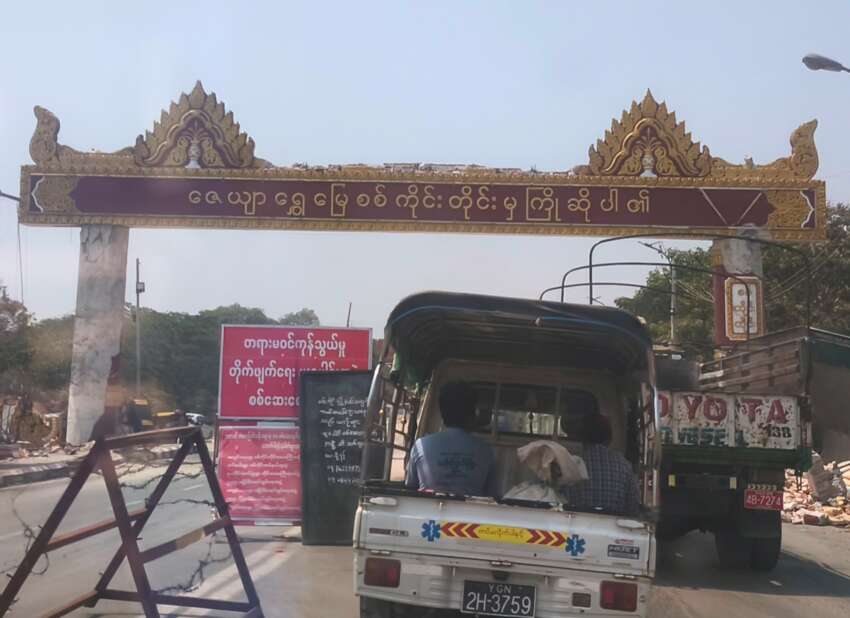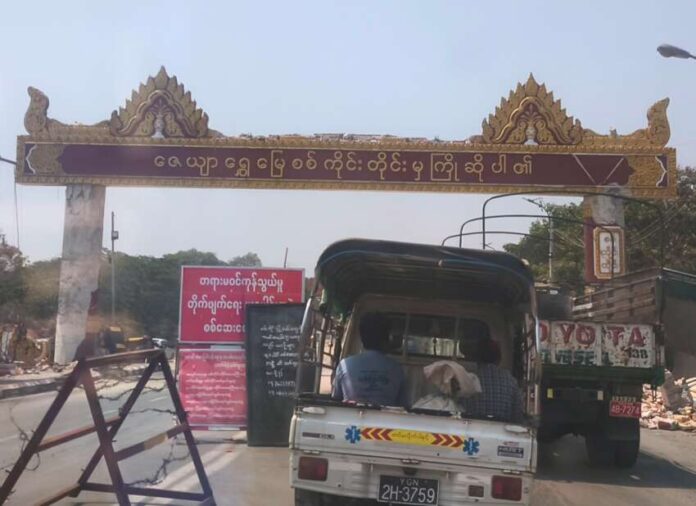Several earthquake relief groups traveling from Yangon and other regions to deliver humanitarian aid have faced restrictions and denials of entry to disaster-hit areas, according to volunteer relief workers.
Sources say groups attempting to enter Sagaing City are being turned back at military junta checkpoints if they lack official township endorsement letters, detailed lists of relief items, or formal coordination with junta-led rescue teams. Without these requirements, access is being denied at key checkpoints on the city’s outskirts.

“There were strict inspections at both ends of the bridge leading into Sagaing from Mandalay. On the day we traveled, many vehicles from Yangon and other distant areas were turned back because they lacked approval letters. Only groups with proper itemized lists for relief distribution were allowed through,” said a male volunteer who recently attempted to deliver aid.
Blocked groups were unable to reach affected communities and reported that their relief items including drinking water, rice, cooking oil, salt, dried goods, and other emergency supplies were not accepted by authorities.
Deputy Commander-in-Chief Soe Win stated during an April 5 meeting in Naypyidaw that no organization would be allowed to operate independently in the earthquake zone. All groups must seek prior approval from the junta and coordinate with its official rescue teams.
Regional and state chief ministers have also been instructed to allow only those NGOs and rescue groups that operate in direct cooperation with the military’s rescue units.
A volunteer preparing to deliver aid to Sagaing said, “Many groups are focusing donations in Mandalay, but Sagaing is receiving very little help. If donors are blocked or turned away, others will be discouraged from coming. It’s disheartening.”
On April 1, junta troops reportedly opened fire on a convoy from the Chinese Red Cross bringing supplies to quake victims in Ummathee village, Naung Cho Township.
In addition to the restrictions on donor groups, local rescue teams have also faced blockades from armed groups along routes to some of the worst-hit areas.
Despite these obstacles, social and humanitarian organizations from Mon State, Karen State, and other regions continue to operate relief efforts in affected townships.
According to an April 5 report by UNOCHA Myanmar, nearly 17 million people across approximately 60 townships could be impacted by the earthquake. The most severely affected areas are facing shortages of electricity, clean drinking water, food supplies, and healthcare services.

